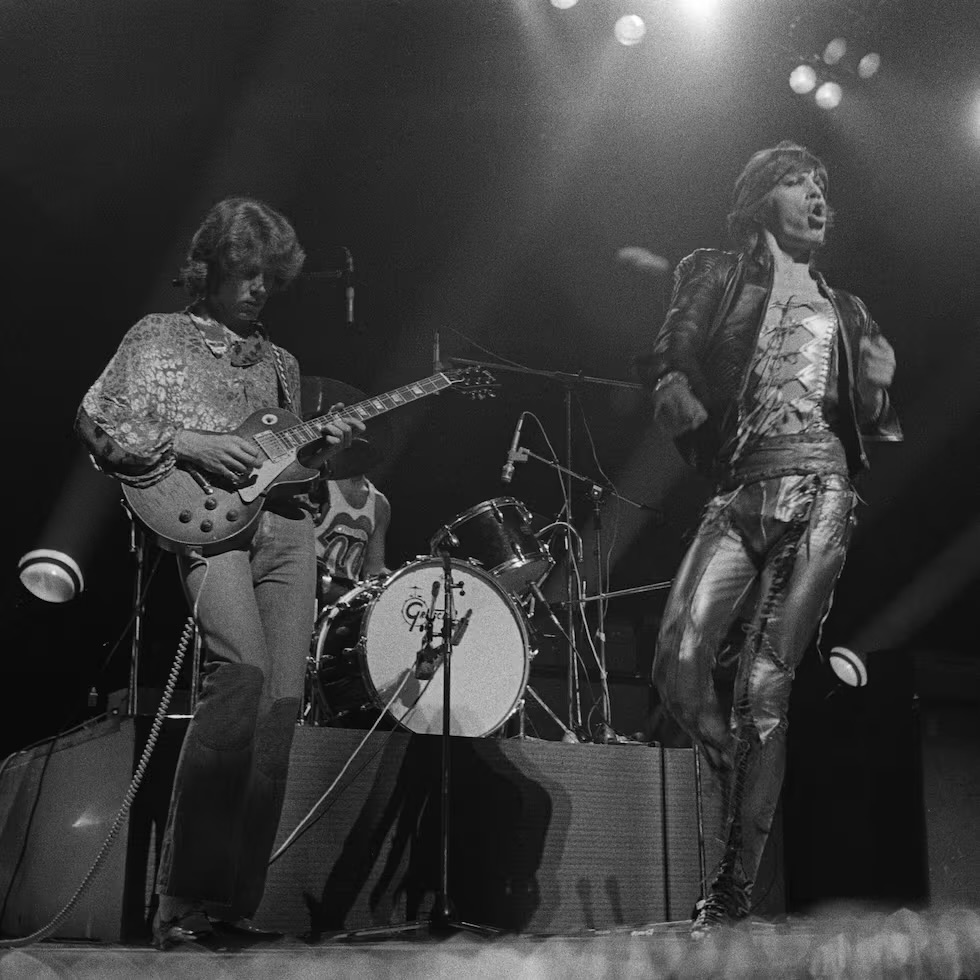Mick Taylor’s entry and exit from the Rolling Stones are significant chapters in rock history, filled with drama, talent, and turbulence. Taylor joined the Stones in 1969, filling the void left by Brian Jones’s tragic death. At just 20 years old, Taylor was recommended by John Mayall, the British blues purist who had previously seen his potential in the Bluesbreakers. His entry into the Stones marked a new era for the band, characterized by his fluid and emotive guitar playing.

Taylor’s debut with the Rolling Stones came on July 5, 1969, at a free concert in Hyde Park, just two days after Jones’s death. This baptism-by-fire performance in front of 250,000 people was both a tribute to Jones and a significant introduction for Taylor. Despite his youth, Taylor’s musicianship quickly became a cornerstone of the Stones’ evolving sound. His contributions were pivotal, especially on albums like “Sticky Fingers” and “Exile on Main St.,” where his solos and riffs added a new layer of sophistication and emotion to the band’s music.
However, Taylor’s tenure with the Stones was not without its challenges. Internal conflicts, particularly with Keith Richards, marred his experience. In a 1995 interview with Rolling Stone, Mick Jagger mentioned that Taylor found it difficult to get along with Richards, which strained the band’s dynamics. This friction, coupled with Taylor’s personal struggles, including his battle with heroin addiction, created a tumultuous environment.
Taylor’s departure from the Stones in 1974 was abrupt yet deliberate. At Eric Clapton’s birthday party, Taylor informed Jagger that he was leaving the band. This decision had been brewing for some time. In the 2012 documentary “Crossfire Hurricane,” Taylor revealed that his addiction and the chaotic lifestyle of being a Rolling Stone were taking a toll on him. He also felt underappreciated and uncredited for his contributions. In a 1997 interview with Mojo, Taylor expressed his frustration over not receiving songwriting credits for significant contributions to songs like “Sway” and “Moonlight Mile.”
The departure of Mick Taylor was a profound loss for the Rolling Stones. His virtuosity had elevated the band’s music to new heights, and his absence left a noticeable void. Taylor’s influence during his tenure was undeniable, and the band’s dynamics changed significantly after he left. His exit marked the end of a pivotal era for the Stones, highlighting his irreplaceable role in their history.
For an incredible performance with the late Charlie Watts and Mick Taylor, take a look at All Down the Line live in Texas in 1972. You can see the electric energy between these two incredible musicians, the rest of the bandmates on stage.
